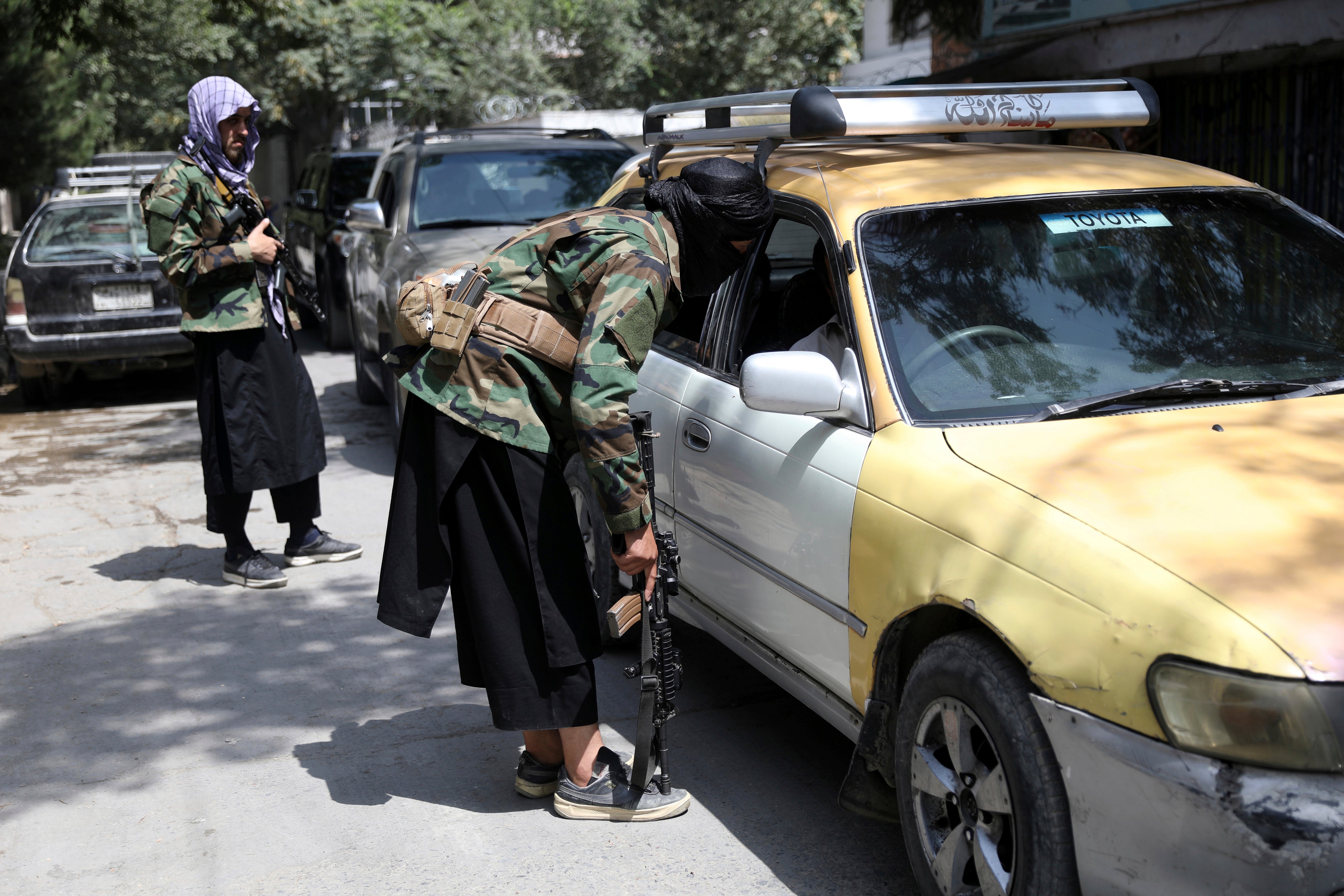The only way to defeat the Taliban is to not recognise its rule in Afghanistan
Surprised at how easy the west made it for it to take over, the Taliban doesn’t know what to do, apart from having its soldiers wander around Kabul and across Afghanistan, spreading fear, writes Roh Yakobi


The tragedy in Afghanistan is a tragedy for humanity. The pictures of Afghans falling off planes and of mothers throwing their babies over a barbed fence, as they desperately try to flee before the dark walls of the Taliban are erected around them, will be remembered among the grimmest days of our time. Future generations will damn us for our inaction and betrayal.
Whilst Afghans are coming to terms with what has been done to them, and as millions hopelessly shiver behind their walls and curtains, those they most expected would help are turning their backs on them.
On 16 August, Joe Biden stood on the remains of the dead Afghans and declared that it was their fault for not wanting to leave earlier. While in Paris, President Macron promised to shut the door in the face of Afghans lucky enough to have survived their journey to the gates of Europe.
There is now a tragic story in every Afghan – as well as millions of men, women and children who have no voice to tell the world of their ordeal.
President Biden, defending his decision to leave Afghanistan in the manner he did, reiterated that he didn’t want the war to be passed to his successors. But a short glance at Afghanistan’s troubled and bloodied history – its geography, its multi-ethnic and multi-layered people – would tell him how wrong he is.
The country has not been at peace with itself and its neighbours since at least the founding of the Durrani Empire in 1747. Emir Abdur Rahman Khan founded the modern Afghan state – with help from British India – reigning from 1880. The Hazaras, now facing a fresh wave of persecution and abuse, had more than half of their population destroyed or displaced.
Since Khan’s death in 1901, Afghanistan has had 14 rulers, all but one of whom were killed or deposed. Only Hamid Karzai, with enormous military and financial backing from the west, succeeded in completing his terms of office. He survived several attempts on his life, and his father and brother were killed by the Taliban.
Afghanistan’s past tells us the trajectory of its future. What we are witnessing is not the end of the Afghan conflict, but its entrance into a new phase. This phase has the potential to be even more deadly than the past.
Afghanistan will remain a problem for the international community. With the US withdrawal, we have lost the opportunity to avoid such a gloomy prospect.
Many are naively and in desperation hoping to see signs of change in the Taliban. They are gravely mistaken – the Taliban is incapable of change.
It has been fighting for the implementation of its extremist ideology; that is what has driven its soldiers to blow themselves up at schools and hospitals. That is what has driven its atrocities: massacres, rape and torture. Any deviation from the goal will cause a revolt from within the group. A changed Taliban is not Taliban; it would be something else.
In its bid to cling to power and keep its coherence, the group may in fact become more extreme. At a press conference in Kabul on 18 August, Zabihullah Mujahid, the group’s spokesperson – showing his face for the first time and sitting on the desk of the man the group killed just a few weeks ago, and for which Mujahid had quickly claimed responsibility – was asked if the group had changed, “in terms of values and ideology”. “No,” he replied.
The Taliban, contrary to its promises, has seized power by force. The international community must remain committed to its promise of not recognising such a government. As the group prepares to rule, it will be pushed in different directions from within and by its regional backers, whose sole purpose up to now was to get the west out of the country.
Now that goal has been achieved, the interests of each will diverge. The power in the group lies not with its spokespersons or political leaders, but with its military commanders who have been doing the fighting. They will be the ones who will rule.
The lure of power and how its spoils are distributed among those commanders will add further strains on the group’s structure, making it difficult to maintain its unity. Even if it does, it will find it difficult to rule.
The Taliban will not be able to deliver peace and prosperity to the people of Afghanistan, whom they seek to rule by fear. Surprised at how easy the west made it for it to take over, the Taliban doesn’t know what to do, apart from having its soldiers wander around Kabul and across Afghanistan spreading fear, going door to door seeking out journalists, activists and those who worked for the previous government.
In recent days, as a leaked UN report states, the Taliban has intensified its search for those who worked for the west and for the Afghan government.
Sixty percent of the Afghan population are not Pashtuns: they loathe the Taliban. We have already seen anti-Taliban protests spreading across Afghanistan – Ahmad Massoud, the son of Ahmad Shah Massoud, the Northern Alliance commander, is organising a resistance force in the Panjshir valley, the only place not to be captured by the Taliban. The Taliban couldn’t control the valley last time and neither could the Soviets.
No one believed the Taliban would come back. It did. Not many believe it will go away. But a look at Afghanistan’s history tells us otherwise.
In the meantime, however, with the west merely watching and shrinking in on itself, the group feels it can do as it pleases, while terrorist organisations such as Hamas in Palestine, Ahrar al-Sham in Syria and others celebrate and rejoice. Not to mention China, Iran and Russia.
Roh Yakobi s a former refugee, commentator and associate fellow at the Human Security Centre, a foriegn policy think tank






Join our commenting forum
Join thought-provoking conversations, follow other Independent readers and see their replies
Comments